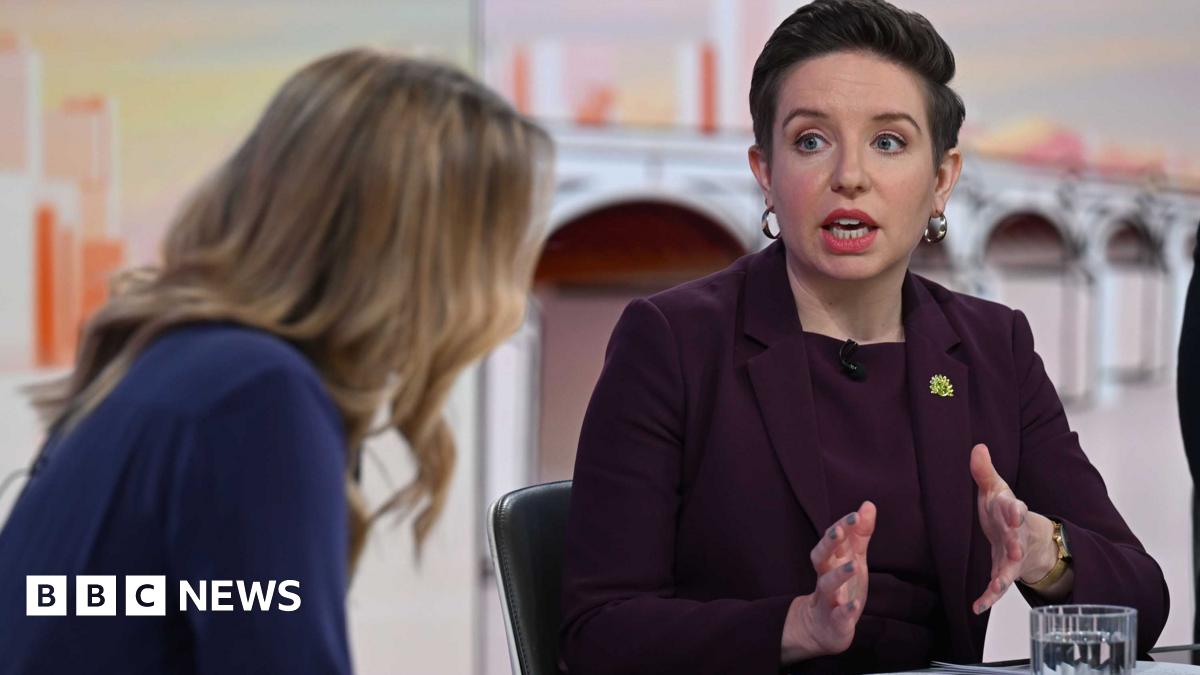Greens Demand End to Single-Sex Guidance: A Call for Inclusive Education
The Green Party has launched a fierce attack on single-sex guidance in schools, calling for an immediate end to the practice and a transition to fully inclusive, gender-neutral support systems. This controversial move has sparked a heated debate, pitting advocates for inclusivity against those who believe single-sex guidance offers crucial benefits. The party argues that current systems perpetuate harmful gender stereotypes and discriminate against transgender and non-binary students.
Key Arguments for Inclusive Guidance
The Green Party's campaign centers around several key arguments:
- Inclusivity and Equality: They contend that single-sex guidance inherently excludes transgender and non-binary students, forcing them to navigate a system that doesn't recognize their identities. This, they argue, creates a hostile and isolating environment.
- Challenging Gender Stereotypes: The party highlights how single-sex guidance can reinforce rigid gender roles and expectations, limiting the personal development of all students. They believe that mixed-gender support fosters a more nuanced understanding of gender and sexuality.
- Improved Mental Health Outcomes: Studies cited by the Green Party suggest that inclusive environments contribute to better mental health outcomes for LGBTQ+ youth. They argue that a transition to gender-neutral guidance is crucial for creating safer and more supportive spaces.
- Promoting Understanding and Acceptance: By fostering interaction between students of all genders, inclusive guidance can help break down prejudices and promote a more accepting school environment for everyone.
Counterarguments and Concerns
While the Green Party's proposal has gained support from LGBTQ+ advocacy groups, it has also faced criticism. Opponents argue that:
- Single-sex guidance offers a safe space: Some believe that single-sex environments can be particularly beneficial for students who feel vulnerable or uncomfortable discussing personal issues in a mixed-gender setting.
- Specific needs of each gender: Concerns have been raised that mixed-gender guidance may not adequately address the unique challenges faced by each gender. For example, issues relating to menstruation or male-specific mental health concerns may require tailored approaches.
- Practical implementation challenges: Critics question the feasibility and practicality of transitioning to fully inclusive systems, highlighting potential logistical and resource constraints for schools.
The Path Forward: A Balancing Act
The debate highlights the complex challenges involved in creating truly inclusive education systems. Finding a balance between inclusivity and addressing the specific needs of all students will require careful consideration and collaboration between educational institutions, policymakers, and community stakeholders. Open dialogue and evidence-based approaches will be crucial in navigating this sensitive issue. The Green Party's call for an end to single-sex guidance represents a significant step in this ongoing conversation, prompting a much-needed critical examination of current practices and their impact on students.
Moving forward, several key questions need to be addressed:
- How can schools ensure that all students feel safe and supported, regardless of their gender identity?
- What resources and training will be necessary to effectively implement inclusive guidance programs?
- How can we ensure that the unique needs of all students are met within a more inclusive framework?
This debate is far from over, and its outcome will have significant implications for the future of education and the well-being of young people.
Further Reading:
- [Link to relevant article on LGBTQ+ inclusivity in schools]
- [Link to research on the mental health of LGBTQ+ youth]
- [Link to relevant government policy on education]
Keywords: Greens, single-sex guidance, inclusive education, gender-neutral, LGBTQ+, transgender, non-binary, school support, mental health, gender stereotypes, education policy, school reform.

